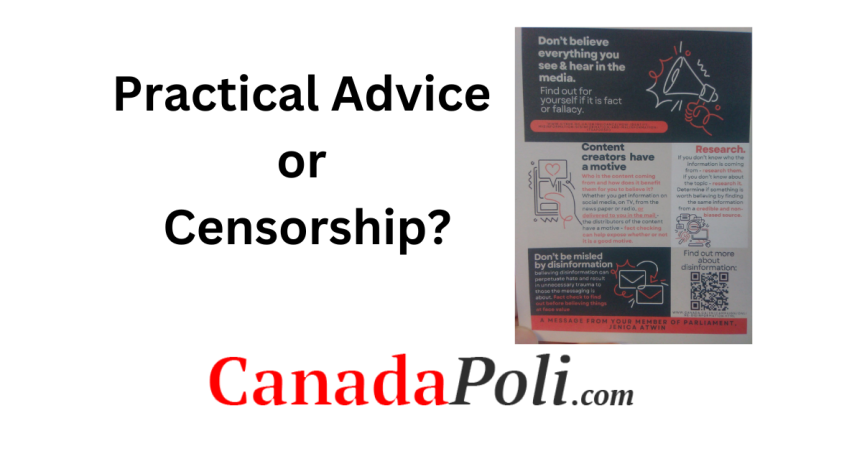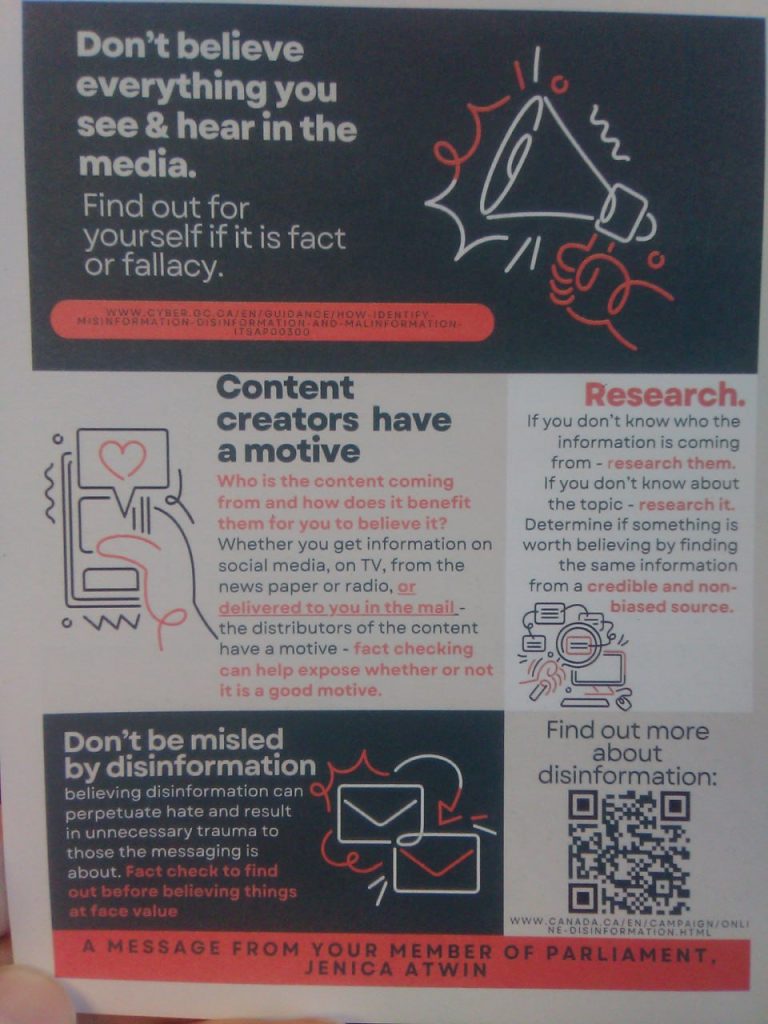
Concerns Raised Over MP’s Leaflet on Media Literacy and Misinformation
CanadaPolinews
Fredericton, New Brunswick – Liberal Member of Parliament Jenica Atwin recently distributed a flyer to her constituents warning against misinformation and encouraging fact-checking and media literacy. While the pamphlet’s stated goal is to help residents better assess the reliability of information, some recipients are concerned that the message could be a subtle form of speech suppression, urging people to dismiss alternative viewpoints that differ from government-sanctioned narratives.
The leaflet, which was left at doorsteps around Fredericton, is titled “Don’t Believe Everything You See & Hear in the Media.” It promotes skepticism toward media information, calling for fact-checking, research from credible sources, and questioning of content motives.
Key Messages in the Leaflet
The pamphlet outlines four main points to help residents analyze the information they consume:
- Questioning Media Content: The flyer advises readers to carefully assess whether what they see or hear is “fact or fallacy,” implying that not all media content should be trusted.
- Considering Motives of Content Creators: It asks readers to consider why certain information is shared and how content providers may benefit from public belief, encouraging skepticism of non-traditional sources.
- Independent Research: The leaflet suggests that individuals research unfamiliar sources and topics, specifically looking for credible, non-biased information.
- Warning Against Disinformation: It cautions against the harm disinformation can cause, linking unchecked beliefs to hate and trauma.
Media Literacy and Misinformation Pamphlet

Concerns of Potential Speech Suppression
While the pamphlet frames itself as an aid to media literacy, some constituents feel it subtly discourages Canadians from considering diverse perspectives, particularly those that challenge mainstream or government-supported views. Critics argue that the emphasis on fact-checking through “credible and non-biased sources” could be interpreted as a warning to disregard viewpoints outside of official narratives.
“Encouraging people to ignore certain media and trust only ‘reputable’ sources can easily become a tool to silence opposition,” said one Fredericton resident. “It’s a slippery slope when government officials are telling us who and what to trust.”
The pamphlet includes a QR code directing residents to a Government of Canada webpage on misinformation, which critics argue further centralizes information control.
A Growing Trend in Misinformation Messaging
As misinformation remains a significant concern for public officials, similar informational materials are becoming more common. However, the balance between educating citizens on media literacy and potentially stifling diverse perspectives is a nuanced issue. Many worry that official recommendations on what constitutes “reliable” information could evolve into a form of soft censorship, discouraging critical discussion and diverse viewpoints.
For now, residents in Fredericton remain divided on the leaflet’s intent—whether it’s a well-meaning guide to navigating a complex media landscape or a subtle attempt to discredit alternative perspectives.
